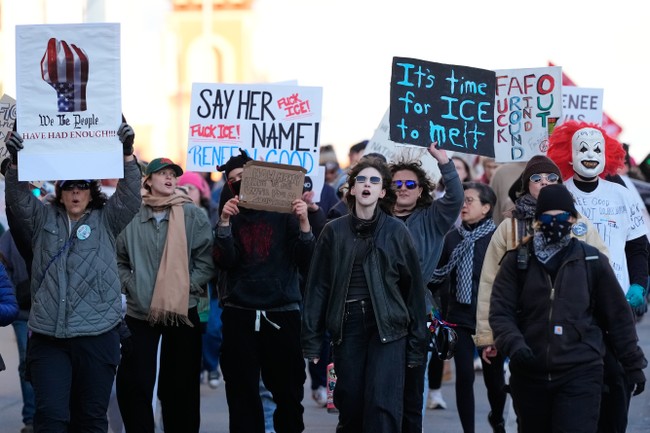RMI Education and Skills Strengthening Project
The Government of the Republic of Marshall Islands has received financing from the World Bank for the Education and Skills Strengthening Project (ESSP) cost. It plans to apply part of the profits for consulting services.
The consulting services ("the Services") will assist the Project Manager and the RMI National Training Council in implementing the World Bank-funded project successfully.
The project will concentrate on supporting the Project Implementation Unit (PIU) in developing a structure for Recognition of Prior Learning (RPL) for TVET, aimed at helping the College of the Marshall Islands and the RMI National Training Council assess and enhance the skills of employees through accredited college accreditation.
The comprehensive Terms of Reference (TOR) for the task are suggested in the attached Terms of Reference (ToR).
The National Training Council now welcomes eligible individuals ("Consultants") to suggest their interest in offering the Services. Interested Consultants need to provide details showing that they have actually the needed qualifications and appropriate experience to carry out the Services (connect a Cover Letter of no more than 4 (4) pages addressing the compulsory experience and credentials requirements curriculum vitae with a description of experience in comparable assignments, similar conditions, and so on). Companies' personnel might express interest through the employing firm for the project. In such a scenario, just the experience and certifications of people shall be considered in the selection process. The requirements for choosing the Consultant are: A.
Mandatory Qualifications and Experience Master's degree in education, training
, management, or a related field. Minimum of 5-10 years of experience working in TVET System. Curriculum Design and Systems.
Possess 2-5 years' experience developing and
carrying out RPL. frameworks, policies, and treatments. A sample of previous work will be needed as evidence of previous experience. Exceptional interaction, training, and assistance
skills. Experience with dealing with varied stakeholders, including federal government. agencies, TVET institutions, employers, and learners in the Pacific. B. Desired Qualifications and Experience Capability to deal sensitively in a multicultural
environment and develop reliable team relationships with clients and pertinent stakeholders. The attention of interested Consultants (consisting of companies )is drawn to paragraphs 3.14, 3.16 and 3.17 of the World Bank's"
Procurement Regulations for IPF Borrowers "July 2016 revised November 2020" Procurement Regulations ", stating the World Bank's policy on dispute of interest. Additional details can be gotten at the address below throughout workplace hours, 0900 to 1700 local time. Expressions of interest need to be
delivered in a written kind to the address listed below (in person or by email )by 5:00 pm, 23rd December 2024.
The subject line ought to state:"National Training Council Strategic Plan Consultant -complete name of the prospect". Julius Lucky Director National Training Council!.?.!ntcdr@ntcinfo.org:Phone: 692 625-4521 Empowering Community Champions for Sustainable Development in RMI Gender Equality, Climate Resilience and Water Safety Training Majuro,

Republic of the Marshall Islands: The 4th
Women and Youth Training for
Gender Equality, Climate Change, Disaster Risk Reduction and Water Safety Management has recently happened at the University of the South Pacific's school in Majuro, the Republic of the Marshall Islands(RMI ). This crucial training was organized by the United Nations Development Programme( UNDP )Pacific Office through the Addressing Climate Vulnerability in the Water Sector(ACWA) job. The week-long capacity-building training intended to empower females and youth with the knowledge and practices needed for climate-resilient water security management in the
Republic of the Marshall Islands(RMI ). This training enhances a commitment to boosting RMI's water security and community durability against climate modification impacts, particularly females
and youth, ensuring that nobody is left behind. The training welcomed participants from all 24 atolls and featured resource speakers from federal government firms, non-governmental organizations, and international advancement partners from the RMI Environmental Protection Authority, Climate Change Directorate, Office of the Chief Secretary, Ministry of Culture and Internal Affairs, National Disaster Management Office, Women United Together Marshall Islands, RMI Human Trafficking Task Force, Waan Aelõñ in Majel, Jo-Jikum, and the International Organization for Migration. In her opening remarks, Secretary for the Ministry of Culture and Internal Affairs, Brenda Alik, highlighted the significance of collective action in developing a climate-resilient nation."It is our duty to come together and interact. As we deal with the obstacles presented by environment modification, comprehending its influence on our water resources is important for improving the well-being of neighborhoods throughout the Marshall Islands,"she said.

RMI Environmental Protection Authority General Manager Moriana Philip highlighted in her speech the vital function of females and youth in addressing climate-related challenges."This workshop unites us from numerous communities to deal with the pressing problems we face today, consisting of climate-related difficulties, particularly on our water resources."We wish to highlight the vital role of ladies and youth in this job as your participation is instrumental to its success and https://www.adb.org/ beyond, "she stated.
The first day of the workshop covered vital issues connected to gender equality, human rights, and public health within the Marshall Islands. It included conversations on gender equality and mainstreaming, concentrating on the effects of environment modification on water security and the out of proportion results on susceptible groups. The value of integrating gender equality and social addition into all job elements was also talked about. Human rights and human trafficking were taken on, stressing the requirement for detailed security of vulnerable populations
during emergency situations. Additionally, the workshop resolved gender-based violence, highlighting the numerous types that can develop in catastrophe situations, such as domestic violence and sexual coercion. The agenda concluded with a focus on sanitation and health and their essential role in health, livelihoods, school attendance, dignity, and structure resilient communities. ACWA Project Manager Koji Kumamaru revealed his thankfulness to all participants
, emphasizing the importance of their contributions to their neighborhoods."Women and youth are essential to the success of the ACWA project. More notably, you are the champions and future leaders who will return to your communities to empower others,"he said. Throughout the workshop, individuals checked out Rongrong Island and took a look at the 15,000-gallon Flatpack Modular water tank installed at the Rongrong High School Boys Dormitory as part of the ACWA task. The installation is a crucial element of the job, matched by support from Australia
's Department of Foreign Affairs and Trade. The see acted as an important direct experience of the favorable effect of the ACWA project on the community and its
water resources. Marie Naisher from Jabat Island expressed her thankfulness for the chance to join the workshop and explained her desire to be part of the project when it reaches Jabat.
"This was my first time participating in such training, and I found out so much from the guest speakers, group activities, and the website visit. I now understand the value of tidy water and how to sterilize it. I'm thrilled about the ACWA job coming to Jabat and all set to help when it shows up,"she said. Don Kobney, an ACWA website organizer from Santo, Kwajalein, likewise shared his enjoyment."The workshop and site see boosted my confidence and understanding of the water tank setup.
Seeing the 15,000-gallon flatpack modular water tank firsthand gave me a clear understanding of the system, and I'm eagerly anticipating sharing this knowledge with my community, "he said. By the workshop's end, individuals were much better equipped to understand environment modification and its local impacts, drive adaptation and mitigation efforts, especially in water safety, and utilize new resources to affect their neighborhoods positively. ACWA is enabled thanks to the assistance of the Green Climate
Fund, with the job co-financed by the Government of the Republic of the Marshall Islands
. The Marshall Islands: Skills Training and Vocational Education Project Evaluates the performance of the job and highlights lessons. Offers inputs to two more comprehensive assessments- the regional evaluation of ADB support for the Pacific and the unique assessment research study on Millennium Development Goals. The low academic attainment and scarcity of Marshallese skilled workers were mostly due to the low quality of standard education, absence of access to education in the outer islands, and weak points in skills training and the occupation and technical education system.
These supported an economy marked by high joblessness because of constrained private sector growth and federal government downsizing. Joblessness was especially high among the youth and ladies in the external islands. Ideal local experienced personnel for existing job vacancies
were unavailable, thus the importation of properly competent foreign workers. Therefore, there was a mismatch between readily available tasks and abilities of the Marshallese labour force. These conditions offered the initiative for the Government
of the Marshall Islands to focus on technical and occupation education training reforms. In 2000, ADB approved a loan for $9.1 million to enhance abilities training to provide well-trained employees needed for sustained economic and social development. This was to be attained through an integrated nationwide skills training system. The project included 4 parts: advancement of a career awareness program, skills training improvement, boosted skills training opportunities for females and youth, and institutional conditioning. The anticipated result was increased income-generating opportunities and work for trainees, especially females and youth in the outer islands. Overall, the task was ranked not successful. Restricted progress was attained in making the task responsive to the requirements of its beneficiaries and private-sector employers. The enduring weak point of poor numeracy and literacy proficiencies
amongst public elementary and secondary school graduates and dropouts entering college or attending voc-tech education could be partly credited to the poor quality of fundamental education. The job was supply-driven and could not establish a strong linkage with private sector requirements or align its activities with the needs of the labour market. The status of the technical and employment education training system has stayed basically the same after project completion. The study advanced that ADB could encourage the Government of the Marshall Islands, through assessment and policy dialogue, to follow through on the government's
dedication to developing a dedicated labour details system to link technical and vocational education training program offerings with industry demand. Although the job set up a labour market details system, in the absence of in-house personnel ability at the National Training Council, it was not totally functional.












